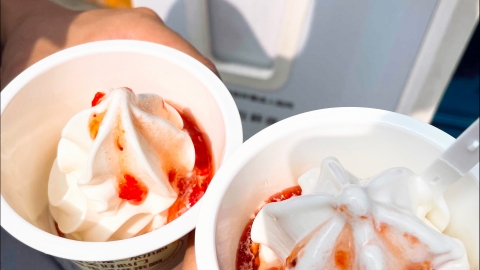Six Things Patients with Rhinitis Should Not Eat
Generally speaking, there is no specific claim that patients with rhinitis cannot eat six particular foods. However, patients with rhinitis should avoid foods such as seafood, spicy peppers, mangoes, fried chicken, and cold desserts like ice cream. Additionally, certain medications, including Aspirin Enteric-coated Tablets, Propranolol Tablets, Penicillin V Potassium Tablets, Paracetamol Tablets, and Huoxiang Zhengqi Water (Agastache Root Water), should also be avoided. The detailed explanations are as follows:
1. Seafood: Such as shrimp and crab, most of which are categorized as foreign proteins, easily triggering allergic reactions. These can cause nasal mucosal congestion and edema, worsening rhinitis symptoms like nasal congestion, runny nose, and sneezing, especially in patients with allergic rhinitis.
2. Spicy Peppers: Containing capsaicin, these strongly irritate the nasal and respiratory mucosa, causing nasal mucosal vasodilation and increased secretions. This can intensify nasal congestion and itching, potentially exacerbating mucosal inflammation and delaying recovery.
3. Mangoes: Some individuals are allergic to components in mangoes. Consumption may trigger allergic reactions in the nasal mucosa, causing nasal congestion, runny nose, sneezing, and possibly accompanying symptoms such as skin itching and rashes. Patients with rhinitis should avoid mangoes cautiously.
4. Fried Chicken: High in fat, fried foods are difficult to digest and increase the body's metabolic burden. Additionally, the frying process may produce irritants that indirectly stimulate the nasal mucosa, potentially prolonging inflammation and delaying rhinitis recovery.
5. Cold Desserts (e.g., Ice Cream): Due to their low temperature, these can irritate the nasal and pharyngeal regions, causing nasal mucosal vasoconstriction, worsening nasal congestion, and potentially reducing immunity, increasing the risk of rhinitis recurrence or exacerbation.

II. Medications
1. Aspirin Enteric-coated Tablets: Some rhinitis patients are intolerant to aspirin. Taking aspirin may trigger or worsen rhinitis symptoms, possibly accompanied by asthma or urticaria.
2. Propranolol Tablets: A β-receptor blocker that may affect nasal mucosal blood circulation, leading to abnormal nasal mucosal vasoconstriction and worsening nasal congestion, which is detrimental to nasal breathing in rhinitis patients.
3. Penicillin V Potassium Tablets: A penicillin-class antibiotic. If the patient is allergic to penicillin, administration may trigger allergic reactions, irritating the nasal mucosa, worsening inflammation, and potentially causing rashes or difficulty breathing.
4. Paracetamol Tablets: Although commonly used as an antipyretic and analgesic, some rhinitis patients may experience allergic reactions after taking it, indirectly affecting the nasal mucosa and worsening symptoms like nasal itching and rhinorrhea.
5. Huoxiang Zhengqi Water: Contains alcohol, which irritates the nasal mucosa, causing congestion and edema, thereby worsening rhinitis symptoms such as nasal congestion and itching. Alcohol may also interact with other medications used to treat rhinitis, affecting their efficacy.
Rhinitis patients should maintain a bland, easily digestible diet, consume more fresh vegetables and fruits to enhance immunity, develop good lifestyle habits, avoid allergens such as dust and pollen, and maintain nasal hygiene.





